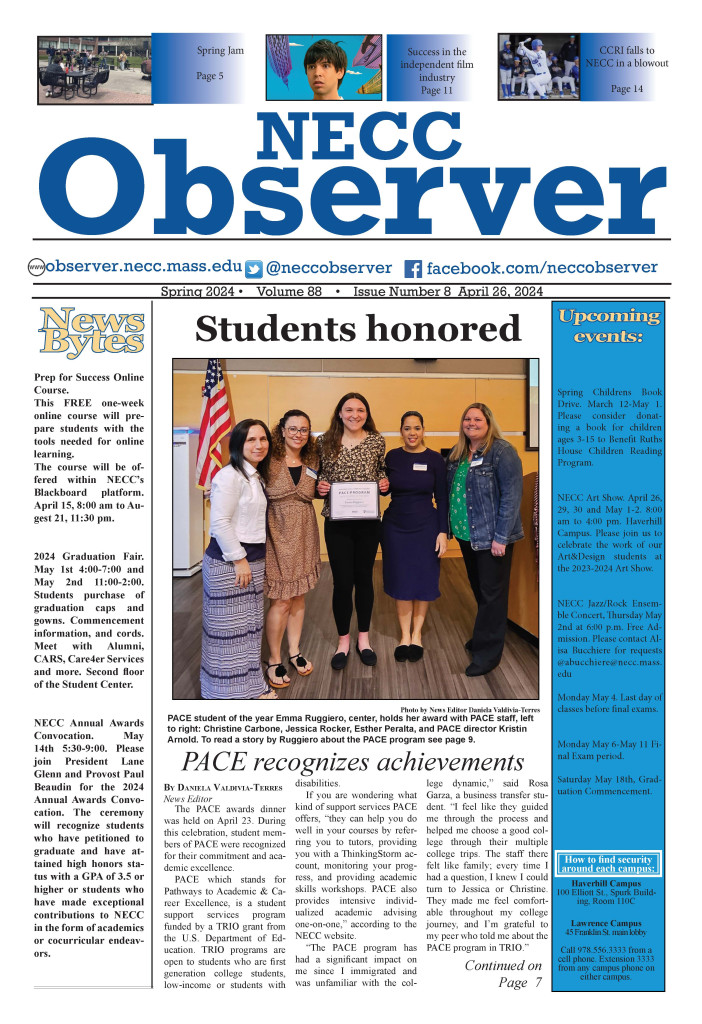Life changed abruptly for students and faculty members when the Covid-19 pandemic hit last March.
With cases rising around the country, this prompted the precautionary decision for all schools, from kindergarten to college, to go virtual. By mid-March, most school campuses were closed and had transitioned to online classes full time to help slow the spread of Covid-19.
“I felt uneasy since this was not something I experienced before,” said Callin MacDonald, 20, of Haverhill.
“I didn’t even get to say goodbye to my friends,” said UMass Lowell student Emily Henrick, 20, of Haverhill.
Online learning consists of regular zoom meetings and visits to online educational platforms such as Blackboard. It offers more flexibility than in-person courses. Students can wake up later than previously necessary to attend classes.
“I have the freedom to create my own schedule,” said MacDonald.
This newfound freedom has presented another challenge: staying focused. Attending class from home as opposed to in classrooms, opens students to an abundance of distractions that may make staying on task difficult.
As Henrick put it, “Discipline is required and so is motivation. Instead of a library or classroom, I’m in my bed with my phone next to me”.
UMass Amherst student, Carson Beviliacqua, 20, of Haverhill, was frustrated when schools first shifted online due to his inexperience with online courses.
“I found it hard to find motivation to work when I’m in the same place I relax in,” he said.
There is promise for a better semester this upcoming fall. The Covid-19 vaccine rollouts have begun, and new cases are decreasing.
“I hope to return to in person learning for the fall now that I’m vaccinated and so is my family, which makes me comfortable being around other students,” said by Henrick, expressing her optimism for the fall semester.
MacDonald seems indifferent, “Learning remotely isn’t ideal, but I’ve gotten used to it by now. I would rather learn online if going on campus puts my own health at risk.”
Meanwhile, Bevilacqua is “crossing his fingers” for a return to campus.
The transition to remote learning has affected everyone differently. Numerous people enjoy the extra flexibility, while others struggle to focus with virtual assignments.
The experience has shown most students and faculty members were not prepared for prolonged remote learning but have adapted very well since last spring.

